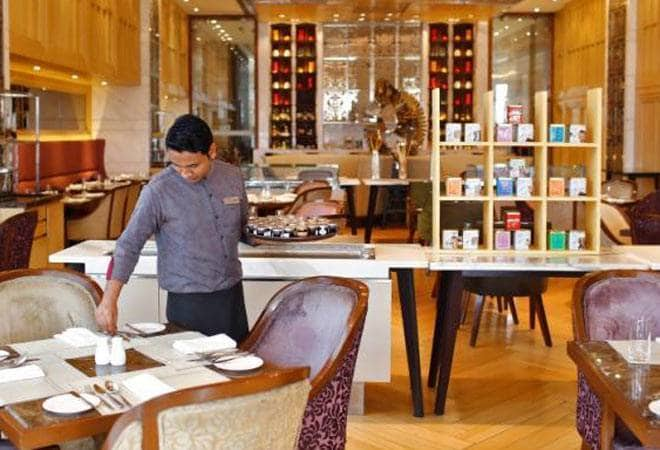
A restaurant business is quite a profitable venture, given that you have a flair for presenting delectable cuisine and also for serving and entertaining guests. Starting a restaurant can be quite a fascinating experience, especially if you are aware of the process to start a restaurant, including the legalities.
With the introduction of the Goods and Service Tax (GST), starting a restaurant can be a smooth process that is systematic and beneficial too. This is because, under the GST scheme, which was introduced in July 2017, there will be a uniform taxation scheme that does away with the several other taxes that were in existence previously. This will prove to be less of a hassle for the restaurant owners.
A new restaurant has to register itself under the new GST scheme and comply with its norms. It must be kept in mind that a restaurant under the new GST scheme will be taxed depending on whether it is an air-conditioned (AC) restaurant or a non-AC restaurant and also on its annual turnover.
There are other details of the GST scheme too for new restaurants is as elaborated herewith. But registering for GST is foremost and the GST registration documents needed include-
- A photograph of the owner or proprietor of the restaurant
- In case of a partnership, a photo of the managing partner or the designated partner
- Also, in case of a partnership, a copy of the partnership deed
- Ownership document of the restaurant (property), if you won the place, such as an electricity bill or tax receipt or registry documents of the property
- If the site or property is on rent then a copy of the rent agreement along with a copy of the electricity bill with the name of the owner mentioned in the bill
- Bank documents such as a scanned copy of the passbook, or of the statement of accounts or a scanned copy of a canceled cheque with all the details visible
Along with these documents the Form GST REG-01 needs to be filled for GST registration for a new restaurant, and after submitting it, a verification of the papers will be carried out, and if everything is found satisfactory, the certification with GST registration number is granted.
GST Rates for Restaurants
Under the GST scheme, there are pre-fixed taxation rates for restaurants based on the turnover of the restaurant and whether it is an AC establishment or a non-AC.
As per the revised GST rates-
- Standalone restaurants, both AC and non-AC will be taxed at 5% GST rate without input tax credit (ITC).
- Restaurants that are a part of hotels where the tariff declared for the accommodation is below Rs 7500 are charged a GST rate of 5% with no ITC.
- Restaurants that form a part of a hotel where the tariff for the accommodation exceeds Rs 7,500 are charged 18% GST with ITC.
- Regular catering businesses such as those working at company premises are charged 5% GST rates with no ITC.
- Event catering and outdoor catering businesses are charged 18% with ITC.
Here, let’s understand what ITC stands for and comprises-
ITC means Input Tax Credit for the restaurant business and implies the availing of credit for the input taxes paid by the restaurant. This means restaurant owners can get credits for the taxes they have spent on the raw materials purchased when the final indirect tax liability is computed on the items that are collected from the restaurant’s customers.
This ITC has a few conditions which include-
- The dealer must be registered under the GST scheme.
- The stock invoice should not be older than 12 months.
- The stock needs to be used in a taxable supply.
- Under GST law credit is allowable.
The 5% GST rate for most restaurants under the GST scheme is part of the Composition scheme which has few restrictions for the restaurants, which include-
- The turnover of the restaurant should not exceed Rs 1.5 crores, and in the case of certain special category States, it must not exceed Rs 1 crore.
- The establishment should only operate as a restaurant and should not engage in any other services.
- Interstate outward supply of goods cannot be made by the restaurant.
- The restaurant cannot supply any of the items that are exempt under the GST scheme.
- Restaurants cannot supply goods via an e-commerce operator
- The input tax credit cannot be availed by the restaurant.
- Taxes cannot be collected by the restaurant from the customers.
These are the restrictions of the Composition scheme but the GST scheme, in general, has various benefits for restaurant owners.
Benefits of GST Scheme for Restaurants
- In place of the multiple taxes that were there before, GST is now a single law that restaurant owners need to adhere to.
- Restaurant owners can avail credit of GST paid on procurements which include entry tax paid on machinery, CST on interstate purchases and excise paid on acquisition of furniture and packaged foods which were not allowed as a credit to restaurant owners previously. With GST, all the taxes paid on such procurements are allowed as credit unless they are required to pay taxes at a concessional rate.
- Restaurants have the option to pay taxes under the composition scheme at 5% if the turnover does not exceed Rs 1.5 Crores.
- Additionally, restaurants have a concessional GST rate of 5% (without input tax credit).
- Restaurant owners can also avail credit on food or outdoor catering if used in a similar line of business.
Summing up, the new GST scheme streamlines the taxation process for restaurant owners, making it easy to understand and comply to and further, the programme has its own advantages for restaurant owners too.

Be the first to comment